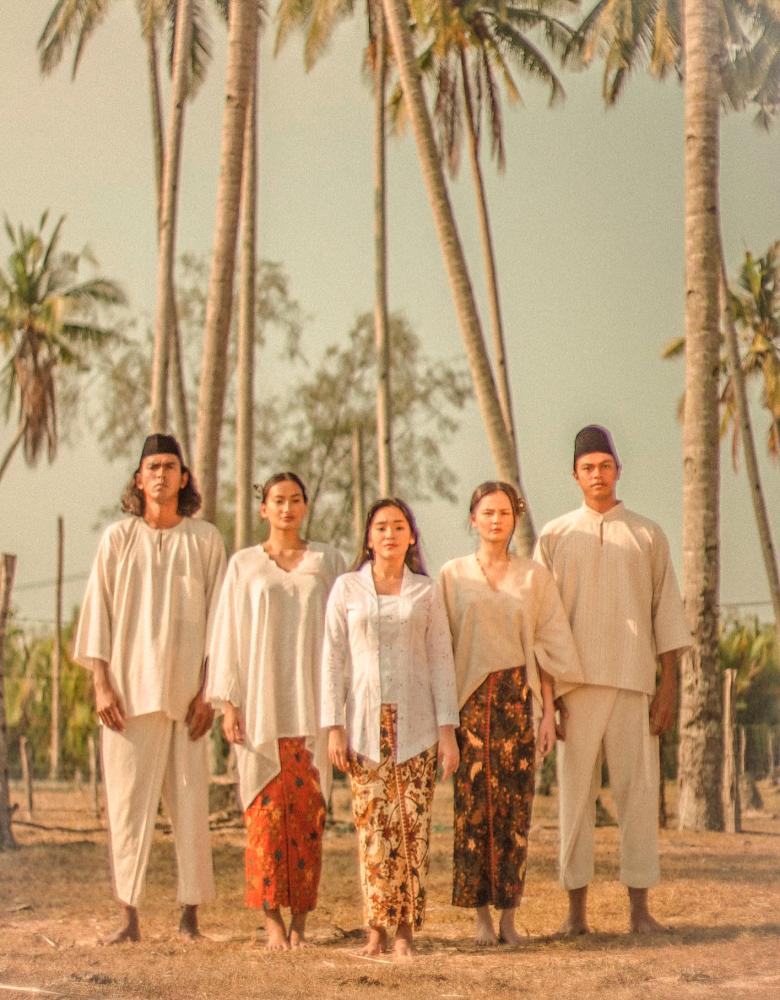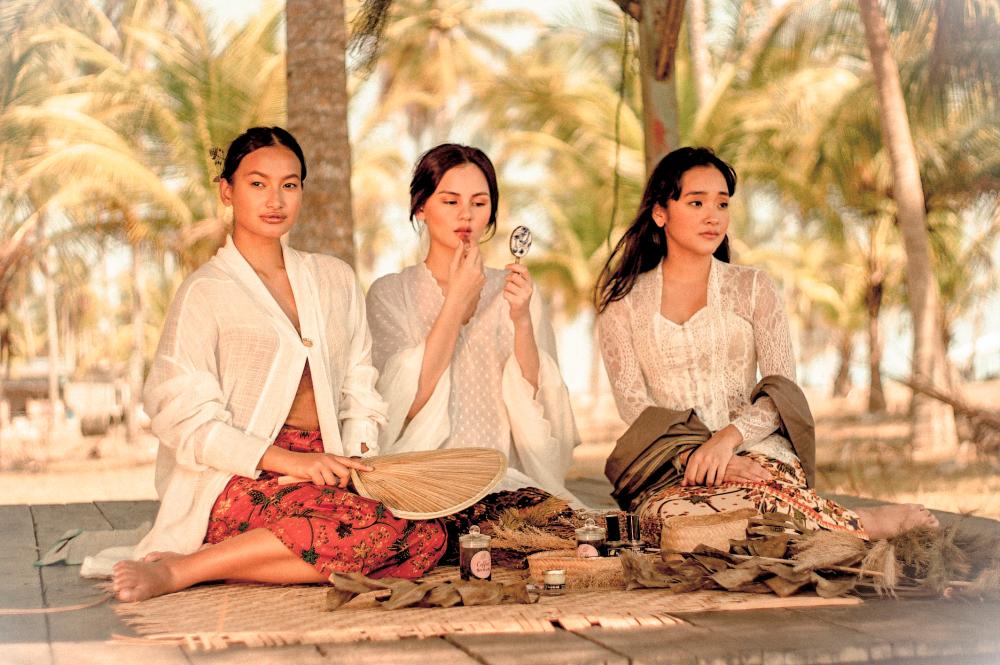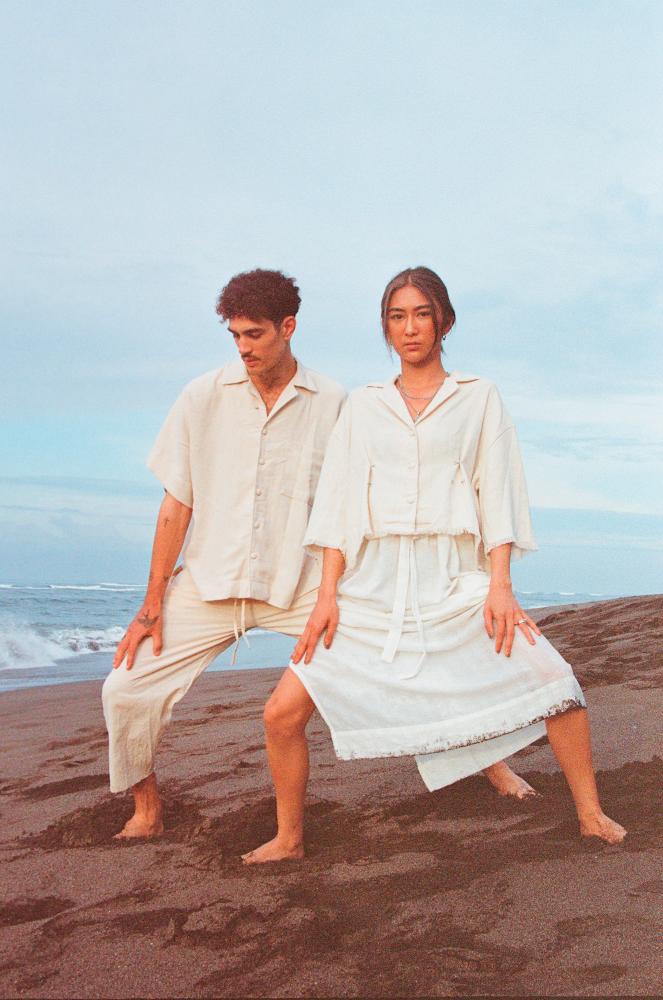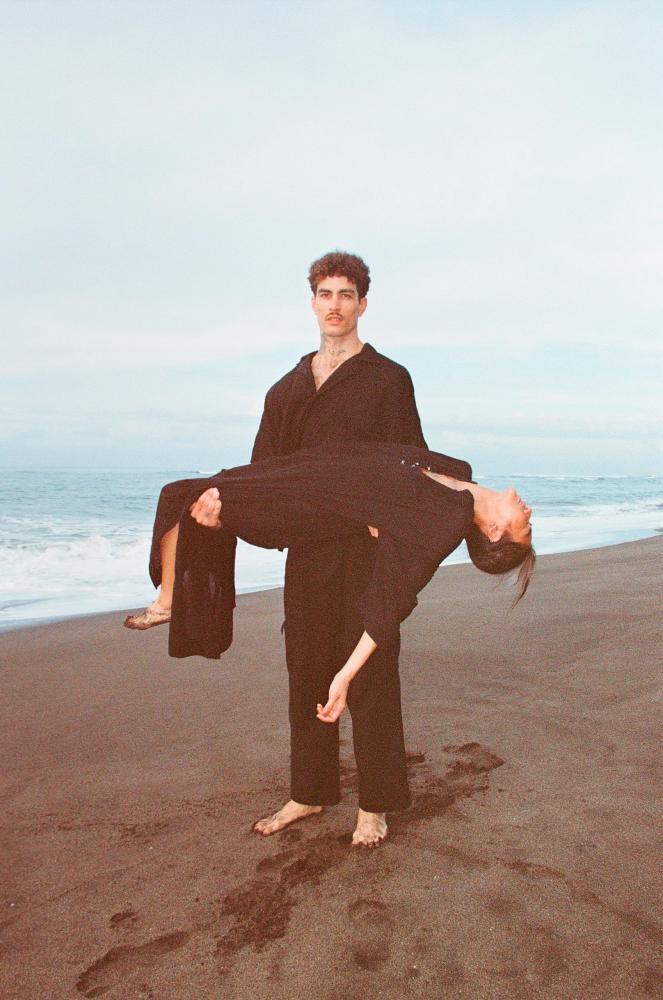TANGSI Tujuh is a Malaysian heritage apparel label and cultural production pervading contemporary, modern times in total Nusantara style.
Formed by bridal designer Jeffri Mohamad Jaapar and makeup artist Juliana Nazar in March 2018, Tangsi celebrates the cultural influences of the Nusantara archipelago, and has embraced the esoteric concept of “Nusantara living” or “slow-living, and the strong relationship with Mother Earth,” as Jeffri puts it.
There is no better way to exemplify and communicate time-honoured Nusantara pride than through the physical articles of clothing at the centre of Tangsi’s culturally-charged narrative.
Jeffri shares: “In every culture, there’s a story behind every detail. We see clothing as synonymous to culture, custom and identity; hence, Tangsi traces back how the Nusantara people have lived, how they balanced and preserved customs and spirituality, the connection and dependency between Human Nature and Mother Nature.
“Since way back, fashion was used to differentiate social status and groups. For instance, certain accessories or motifs in embroidery are exclusively reserved for royalty, others are limited to the nobility and those of lower status group. Some of these customs can still be seen today.
“However, as the world developed, so did the clothing.”
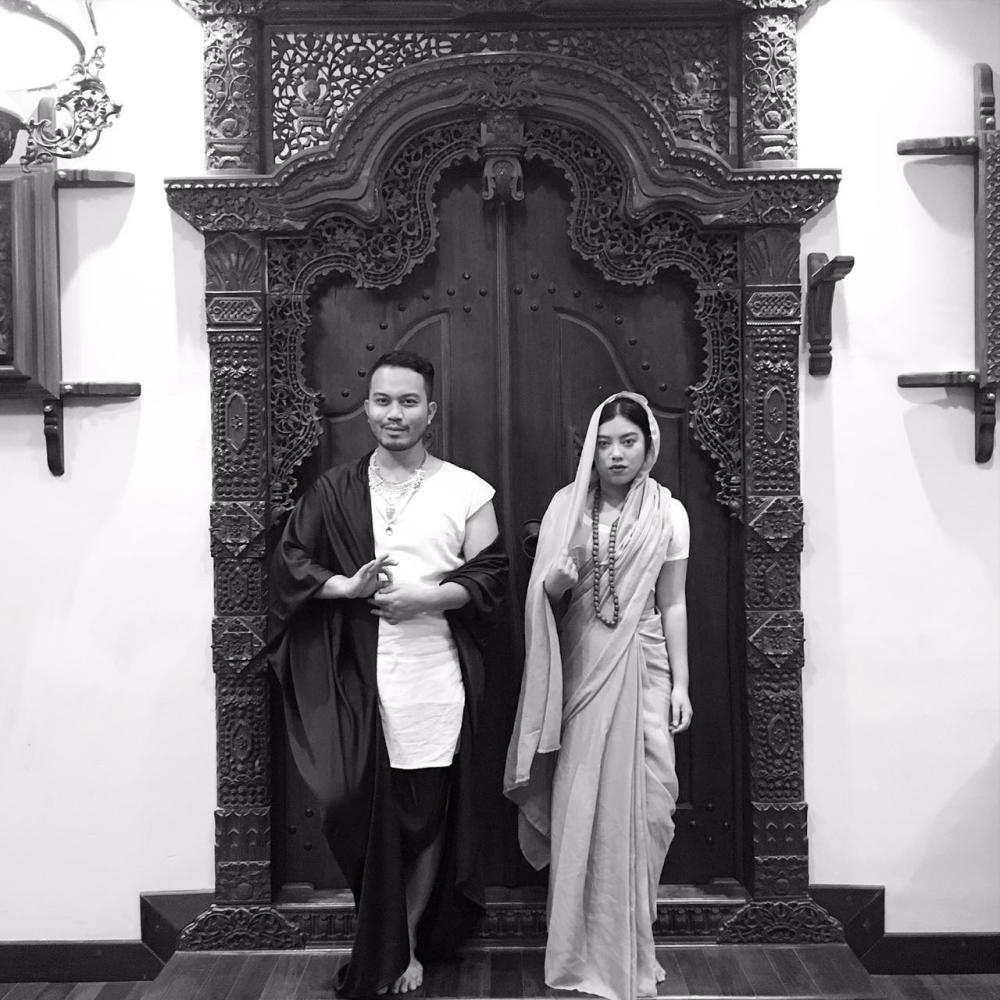
Nusantara – derived from two ancient Sanskrit words: ‘nusa’ meaning ‘island’ and ‘antara’ meaning ‘in-between’ – could be found in Javanese texts as early as the 13th century, where Nusantara was translated as ‘outer islands’. However, in modern Malaysia and Indonesia, it’s often translated as ‘archipelago’.
In spite of that, Malaysia has seemingly detached itself from the concept of Nusantara over time, while it is significantly more evident in Indonesia, reflecting across the spectrums of politics, socio-culture, economy and others that allow for greater national unity.
“Couldn’t agree more on this, as even we were once a part of the Nusantara archipelago,” Jeffri explains. “Historically, Nusantara covers the area of Southeast Asia today, starting from the southernmost part of Thailand stretching to the Philippines, an area which includes Sumatera, East Timor, Malaysia, Brunei and Singapore.”
As Tangsi is a local fashion brand that embraces the bygone era of Nusantara living, I asked: “So how do you keep people informed?”
He shares: “Geographically-speaking, ‘Nusantara’ has become synonymous with modern Indonesia today, but the Nusantara heritage and tradition at large continues to live on regionally. This is why we share similarities in art and culture with our neighbouring countries.
“Same goes with the clothing. Baju kurung, kebaya and batik, originally from the Java islands, has been reshaped with Malaysian culture and identity into kurong Pahang, kebaya Peranakan and batik Terengganu, to name a few.”
Tangsi released its debut collection Megha & Maiya in 2018, employing the distinctive principles of Nusantara’s diverse tribal elements such as baju Bugis silhouette with intricate Minangkabau embroidery on textured cotton, and Kutu Bharu kebaya in delicate lace fabric.
Since then, the heritage brand has made it its core principle to mindfully interpret the quintessence of old Nusantara living in prominent and subtle cues, by playing with clean, minimalistic silhouettes and thoughtful details from regional cultural tribes, and symbolic colour codes.
Tangsi defines Nusantara living as “to live lightly and breath easily,” says Jeffri. The brand’s latest collection Karar was inspired by the cosmic duality of yin and yang, the way man and nature balance, oppose and complement each other in perfect harmony.
“The designs were strictly in black and white hues, to give emphasis to clean-cut and light-as-air silhouettes using natural cotton and linen fabrics to elevate the interplay of harmony.”
Tangsi practices what it preaches, this idea of slow living informs the larger picture of sustainability within Tangsi’s purview. As a reflection of its convictions, how the brand reacted to the disruption of the coronavirus pandemic (coming just as Raya was around the corner) was to skip releasing a festive collection this year, and to pay respect to nature.
While the considered response of having no response to the cultural discourse was rather apposite, others might argue the decision was a missed opportunity.
Jeffri said: “We drive by the cohesive energy of body and nature, and play our role in the awareness of humanity.
“We want to take this time to educate the public to be less selfish, [to be] sensitive and appreciative while we redefine what it means to celebrate, so that we may respond correctly to the current situation.”
